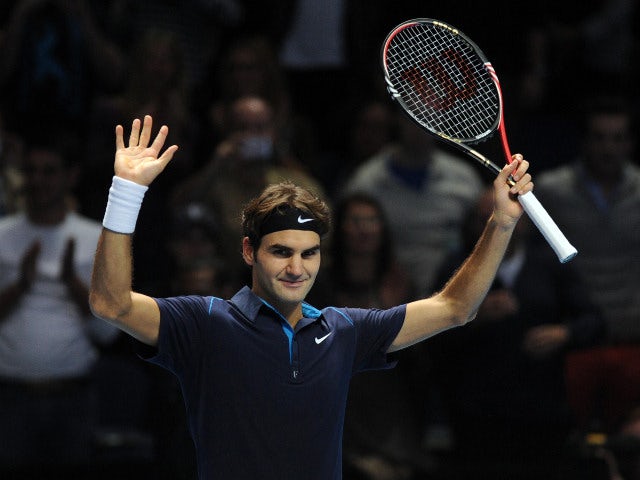In a season in which he lost, then regained third place in the ATP world rankings, 30-year-old Roger Federer still has plenty to be optimistic about.
The one glaring fact which stands out from 2011, however, is that it was the first campaign since 2003 in which he didn't win a Grand Slam singles title.
The year started off well enough after he won the Qatar ExxonMobil Open title in Doha, and a generous draw at the Australian Open saw him meet Novak Djokovic in the semi-finals. Unfortunately for Federer, he encountered a player who was getting into an unstoppable stride and was defeated in straight sets.
In fact, the Serb appeared around every corner for Federer in the following months as he dispatched the former world number one in the final of the Dubai Tennis Championships in February and in the semis at Indian Wells two weeks later.
The clay court season brought an unpredictable array of results, notably a third round defeat to Richard Gasquet at the ATP 1000 event in Rome, but an inspired showing at the French Open saw him set up a final encounter against his old foe Rafael Nadal.
As is so often the case in their history, the Spaniard ground down Federer on clay and notched up a four-sets victory to claim his sixth Roland Garros title.
Pulling out of the Gerry Weber Open before his beloved Wimbledon, Federer hoped to roll up to SW19 as sharp as possible. However, a telling defeat to Jo-Wilfried Tsonga derailed his chances of a seventh All England Club championship. It was only the third match of his career in which he relinquished a two-set lead as he withered under the building tide of the Frenchman.
Another defeat against Tsonga came at the Rogers Cup in Montreal before he was able to exact his revenge on the glittering stage of the US Open at Flushing Meadows.
Ever the man for the big occasion, an enervated Federer dismantled his opponent in straight sets to set up a semi-final clash against Djokovic.
On paper a defeat against Djokovic holds no shame, but Federer shockingly threw away match points having established a two-set advantage as the Serb went on to claim the title.
What Federer can now expect from his career are two types of results: defeats which would suggest that he is past it, and triumphs which emphatically say otherwise.
Fortunately, the finale of his season ended on the most positive upward curve imaginable with three tournament wins, each bearing their own significance.
The first was the victory in his hometown of Basel, defeating Japanese hopeful Kei Nishikori in straight sets. Cue waterworks.
Next came a triumph in Paris, with a straight-sets win against Jo-Wilfried Tsonga, so often a mental hurdle for him to overcome.
He then had the final say on the season by retaining his ATP World Tour Finals title in London, again beating Tsonga in a draining final. Paired with an irresistible display against Nadal along the way, this was the clearest message yet that isn't ready to pass the torch.







